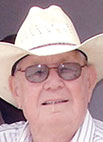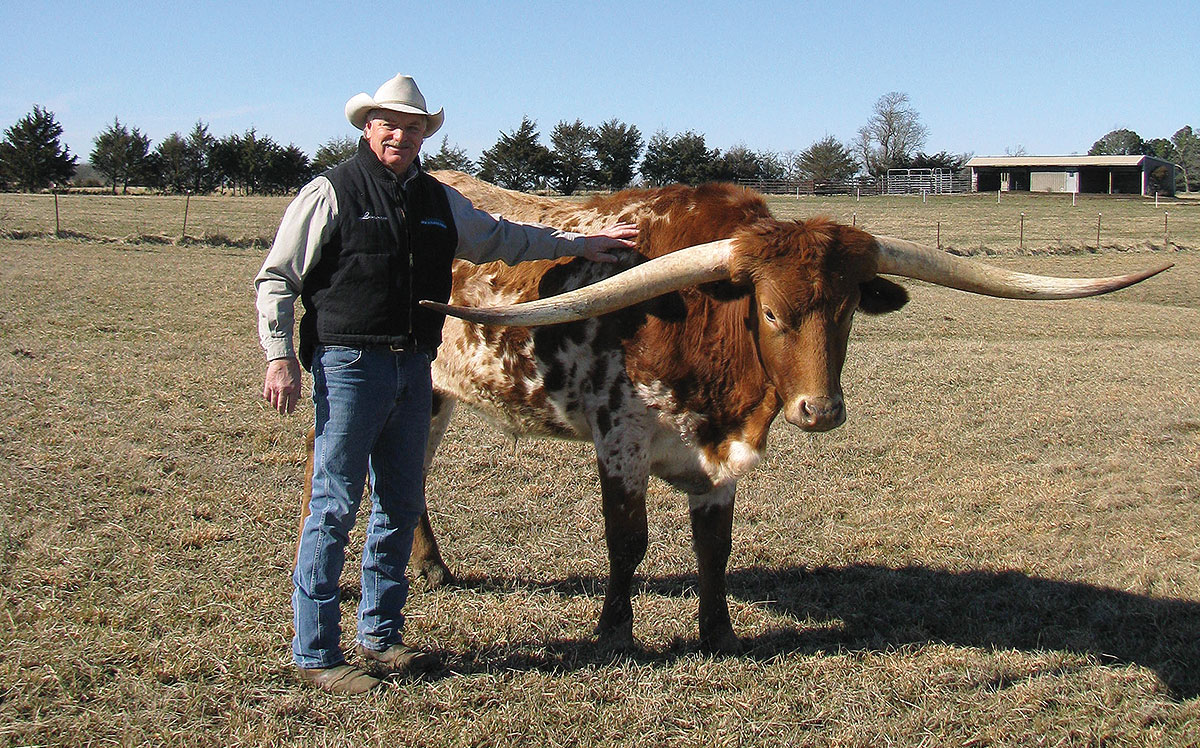
Blake and Janna Robertson select breeding stock that will improve future generations of their herd
Blake and Janna Robertson of Nevada, Mo., grew up raising cattle. They enjoy caring for cattle and are spreading that love for livestock to their children, 9-year-old Tyne and 5-year old Niya.
“I had cattle and sold calves to pay my way through college,” Janna said. “My goal was to finish college without student loans, which was successful.”
Like Janna, Blake explained growing up with cattle as well.
“My family raised cattle and I helped care for them. Janna and I both showed in 4-H and FFA, and now the girls are in 4-H,” he said.
Blake worked off the farm for a few years after college, but now is farming and ranching full time. Janna is the owner and teacher of Little Tikes Preschool in Nevada and is a veteran teacher of 22 years.
Tyne and Niya have responsibilities, too. Currently, they care for two bucket calves named A.J. and Axle.
Since 2016, the girls have been responsible for 14 calves. Two years ago, the girls sold four steers and invested in a bred Angus cow. Tyne and Niya are eager and excited to see “their herd” develop and multiply.
Blake and Janna’s commercial Angus cow/calf operation consists of a few hundred cows and bulls.
“We do not do any crossbreeding.” Blake said. “We select cattle for grading and feeding qualities, as well as growth and end product merit.”
Their breeding program is either natural breeding or AI. They breed heifers at 14 to 15 months of age. The Robertsons’ have a tight 45-day calving window for September/October and January/February. All the bulls are from Hinkle’s Prime Cut Angus of Nevada. The cow herd is Hinkle-based as well.
“We select for certain EPDs and genomic test results when we purchase bulls,” Blake said “I’m also looking at the structure of the bulls.”
Most of the veterinarian work is done by Blake and Janna onsite, but the herd health program is overseen and directed by Dr. Erik Andersen of 54 Vet Clinic in Nevada. They vaccinate and deworm cows and bulls bi-annually, and calves get three rounds of shots before going to the feed yard. Records are kept using the RFID Tagging System. Before calves are shipped to the feed yard, they get a U.S. Cattle Trace visual tag.
The Robertsons have a traditional feeding program. Cows are grazed on fescue pasture with clover and lespedeza in the mix. They use other feed products, such as minerals, creep feed and supplements. They also feed silage, brome hay and other products from Purina. Blake soil tests annually and fertilizes accordingly.
Along with raising cattle, the Robertson’s also sell beef.
“We sell by the quarter, half, or whole,” Janna said. “We feed 100 percent of our calves out to finish and harvest on the grid at Hy-Plains Feed Yard in Montezuma, Kan. Our processing is done in Dodge City and grades choice or prime. Each time we get kill data back, I call it our ‘grade card.’ This is the one-shot at knowing how their quality of beef is for our consumers. They want the end result to be the best they can produce.”
With the young cowgirls following in their parents’ and grandparent’s footsteps, the future plans are to keep expanding the cow herd and make each set of calves better quality to satisfy the end user-the consumers. It’s all about improving the beef industry.
The Robertsons are always learning. They are involved in many areas of beef production such as Vernon County Cattleman, Missouri Cattleman, National Cattlemen, American Angus Association and 4-H projects.







